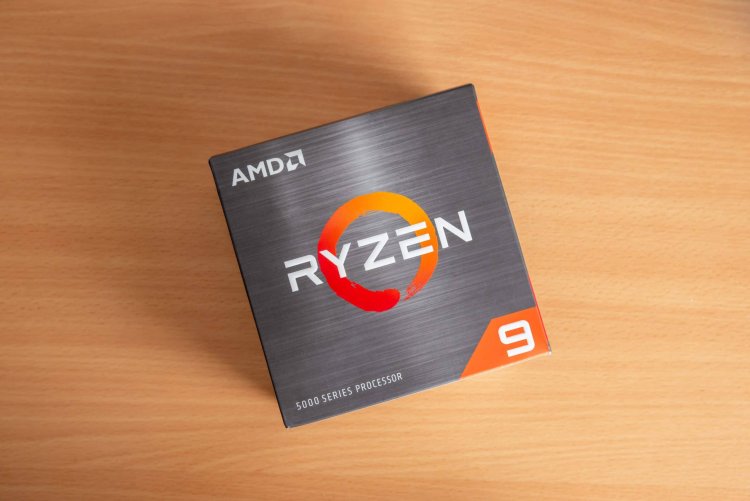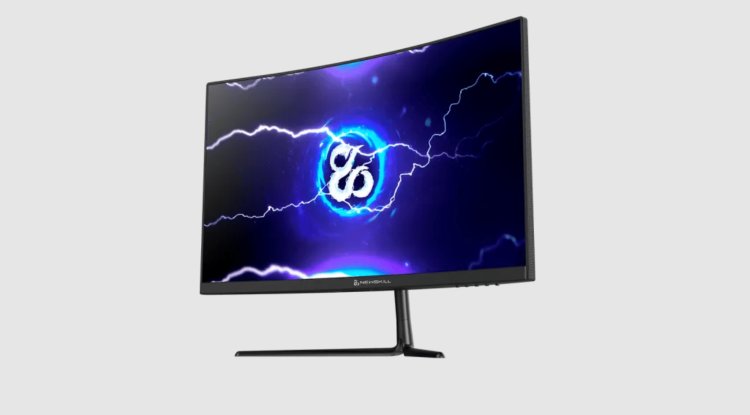The Ryzen 9 7950X: 15% more in single thread

Although we do not yet have definitive nomenclatures, everything points to the Ryzen 9 7950X as the top-of-the-line processor of the new generation that AMD will debut later this year.
We know it will be made on TSMC's 5nm node, and we also know how it will be configured inside, due to all of the information released by the company's CEO, Lisa Su, at the opening keynote of Computex 2022.
The Ryzen 9 7950X, as well as all CPUs in this generation with more than 8 cores, will employ two chiplets built on TSMC's 5nm node. Each chiplet will include:
- 8 Zen 4 cores.
- 8MB of L2 cache.
- 32 MB of L3 cache accessible by all 8 cores.
These two chiplets will provide the Ryzen 9 7950X with 16 cores and 32 threads in total. The I/O chip, which will include the DDR5 and PCIe Gen5 controllers, as well as an AMD Radeon GPU based on the RDNA2 architecture, will be located just below the two chiplets.
The Ryzen 7000 will be made in the TSMC 6nm process, which means it will employ the 5nm node for the CPU and the 6nm node for the I/O and integrated GPU.
As the earliest reports suggested, the Ryzen 7000 series will be confined to DDR5 memory configurations, which means that if we want to upgrade to this new generation of processors, we will need to buy a new motherboard as well as a new memory kit, but is it really worth it?
It's a nice topic, but we believe we should go further and consider if AMD can truly compete with Intel after reviewing all of the official material that AMD has provided.
AMD never stated that Zen 4 will give a 15% IPC boost over Zen 3, but it did state that we will see a 15% improvement in single-thread performance. If we closely examine that sentence, we will notice several crucial points:
- There is mention of a 15% overall improvement, which includes both the IPC-derived gain in performance and the increase in work frequency.
- It is a maximum value in the best of scenarios, and it was attained when compared to the Ryzen 9 5950X in Cinebench R23, implying that AMD employed the previously mentioned Ryzen 9 75950X processor.
- In addition, AMD chose DDR5 memory at 6 GHz with a very tight latency to accompany the Ryzen 9 7950X in the comparison, according to the tiny print linked with that statement.
Considering all of this, and the fact that the difference in working frequencies between the Ryzen 9 5950X and the Ryzen 9 7950X in a single thread is significant (4.93 GHz for the first and 5.4 GHz for the second).
It is obvious that an increase in frequencies would account for a significant portion of the improvement in single-thread performance, and we must also consider the impact of RAM memory.
To continue with AMD's comparison, the Intel Core i9-12900K has a single-thread performance of 1,930 points in Cinebench R23, whereas the Ryzen 9 5950X has a performance of 1,684 points.
A 15% improvement would result in an additional 252 points, for a total of 1,936 points. The difference is slight but significant enough to declare the Ryzen 9 7950X the winner.
However, the gap in multithreading would be much greater because the Ryzen 9 7950X lacks a high-performance, high-efficiency core split. AMD claimed a 31 percent performance boost in Blender over the Intel Core i9-12900K, but what will happen when Core Gen13 processors, i.e. the Raptor Lake-S series, enter the market?
AMD and Intel are engaged in one of the most fierce and consequential battles in recent years in the market of high-performance general consumer CPUs.
AMD was hard hit with Zen 3, but Intel responded with Alder Lake-S, and now it appears that the Santa Clara giant could beat the Sunnyvale giant with Raptor Lake-S, not just in terms of raw power, but also in terms of compatibility and support, as that generation of processors will work with the LGA1700 socket and support DDR4 and DDR5 memories.
AMD may have a significant advantage in the integration of an RDNA2 GPU in its Ryzen 7000 APUs, as it has done with its Ryzen 6000 APUs, and it may also choose to fine-tune costs much better than it did at the time.
In any scenario, and regardless of who wins, the key point is that there will be fierce competition between both corporations and that the ultimate benefactors will be us, the consumers. It's fantastic to see Intel and AMD competing so fiercely.




























